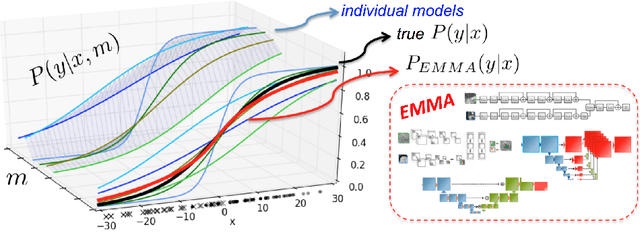Ensembles of Multiple Models and Architectures for Robust Brain Tumour Segmentation
Paper and Code
Nov 04, 2017



Deep learning approaches such as convolutional neural nets have consistently outperformed previous methods on challenging tasks such as dense, semantic segmentation. However, the various proposed networks perform differently, with behaviour largely influenced by architectural choices and training settings. This paper explores Ensembles of Multiple Models and Architectures (EMMA) for robust performance through aggregation of predictions from a wide range of methods. The approach reduces the influence of the meta-parameters of individual models and the risk of overfitting the configuration to a particular database. EMMA can be seen as an unbiased, generic deep learning model which is shown to yield excellent performance, winning the first position in the BRATS 2017 competition among 50+ participating teams.
 Add to Chrome
Add to Chrome Add to Firefox
Add to Firefox Add to Edge
Add to Edge